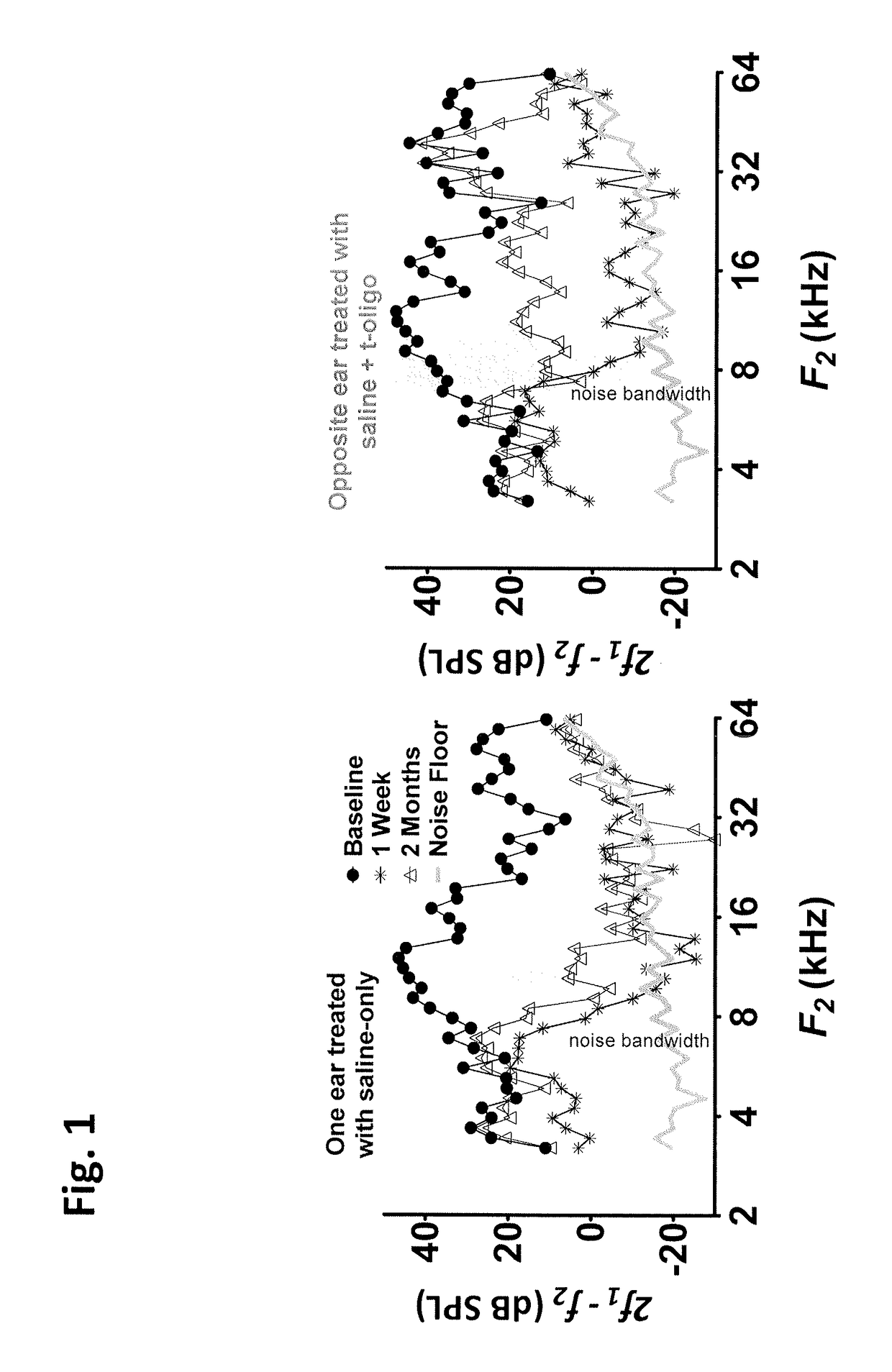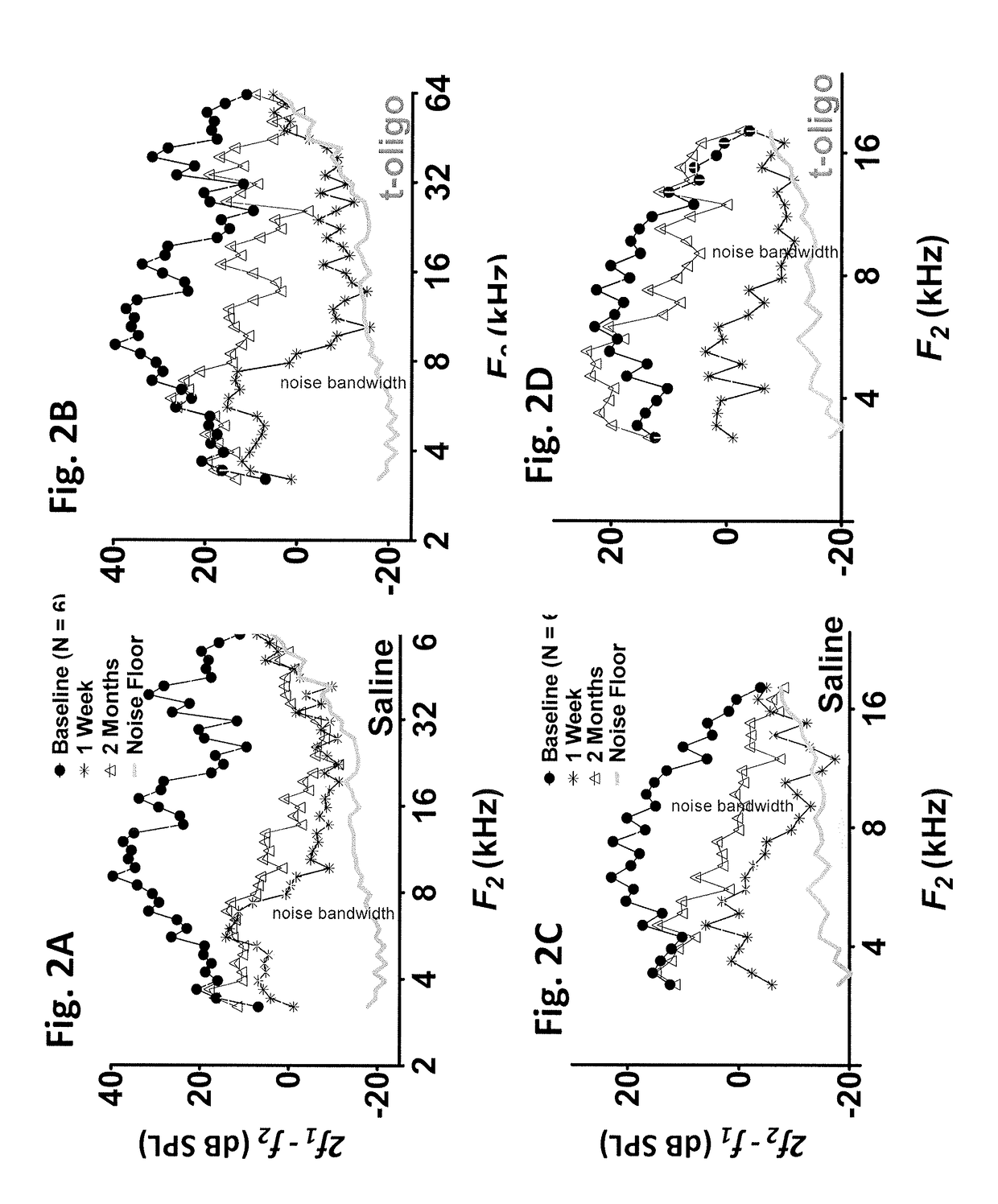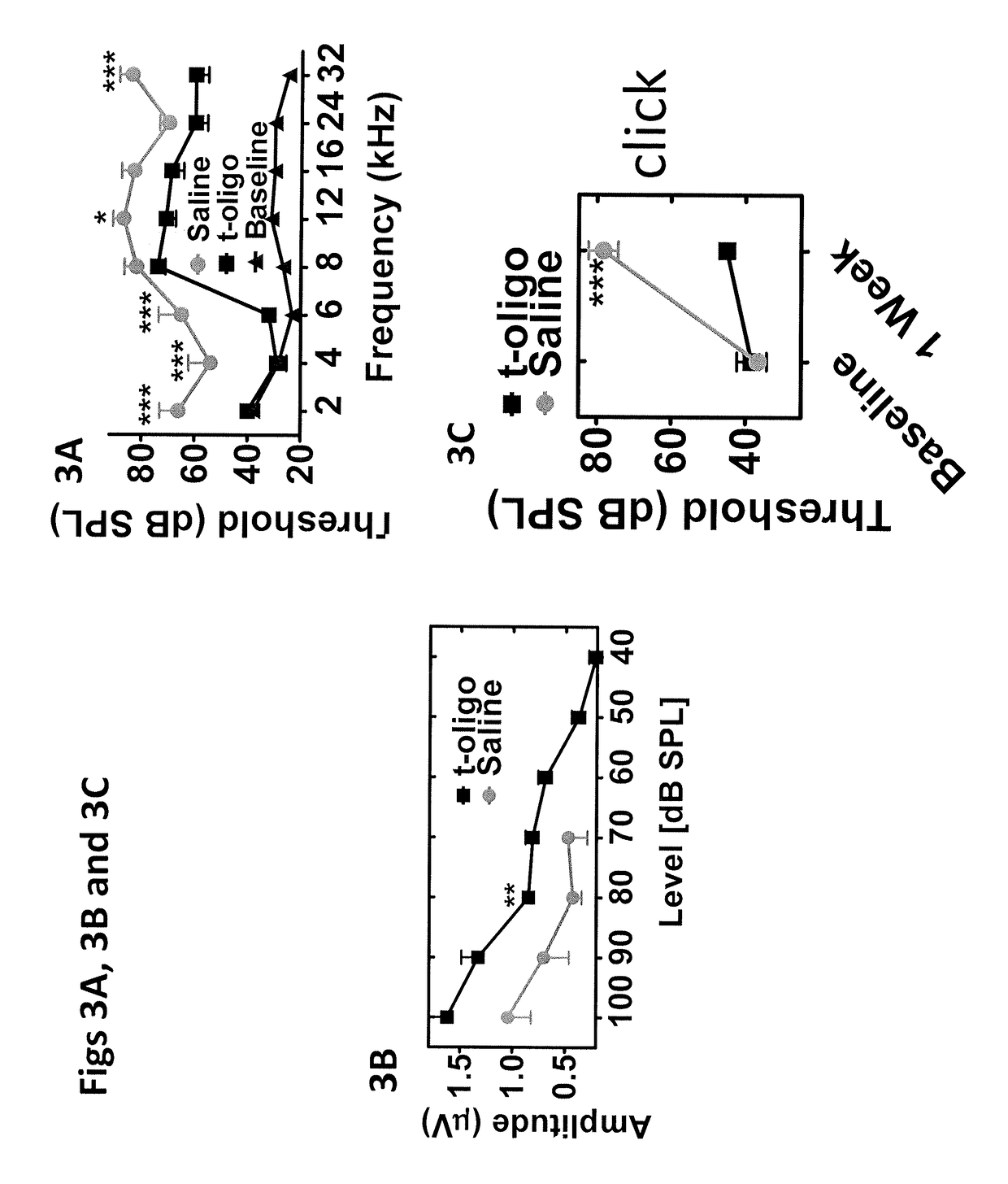Methods of treating, inhibiting and/or preventing an auditory impairment
- Summary
- Abstract
- Description
- Claims
- Application Information
AI Technical Summary
Benefits of technology
Problems solved by technology
Method used
Image
Examples
example 1
[0125]There were three experimental objectives. The first, was to determine whether or not t-oligo treatment could recover outer hair cell function when administered after exposure to a damaging level of noise. If hair cell functions could be recovered then it might also be possible to recover retrochlear (e.g., neural) functions. Distortion product otoacoustic emissions were used to evaluate outer hair cell functions and auditory brainstem responses were used to measure retrocochlear functions. The second, was to determine whether t-oligo treatment induced any change in gene or protein expression of DNA repair factors. The genes or proteins involved were ATM, p53, XPC, XPF, XPG, and ATM / ATR / DNA-PKs substrates. The third, was to determine whether t-oligo induced a dose-response effect in the cochlea and whether there was also a temporal effect on gene expression within the cochlea.
[0126]Materials and Methods
[0127]Animals: Six male Long-Evans rats (100 g at 1 months old) were acquire...
PUM
| Property | Measurement | Unit |
|---|---|---|
| Concentration | aaaaa | aaaaa |
| Structure | aaaaa | aaaaa |
Abstract
Description
Claims
Application Information
 Login to View More
Login to View More - R&D
- Intellectual Property
- Life Sciences
- Materials
- Tech Scout
- Unparalleled Data Quality
- Higher Quality Content
- 60% Fewer Hallucinations
Browse by: Latest US Patents, China's latest patents, Technical Efficacy Thesaurus, Application Domain, Technology Topic, Popular Technical Reports.
© 2025 PatSnap. All rights reserved.Legal|Privacy policy|Modern Slavery Act Transparency Statement|Sitemap|About US| Contact US: help@patsnap.com



